Alexander Magazinov found something really strange. An Iranian science superstar with direct connection to the top echelones of Iranian terror regime is moonlightning as a PhD student in eastern Germany. Is the town of Jena about to become world’s centre for non-coding RNA research? Or should the German state security be concerned?

Look What the Cat Dragged In
By Alexander Magazinov (with LS)
This time, the cat dragged in something really nasty.
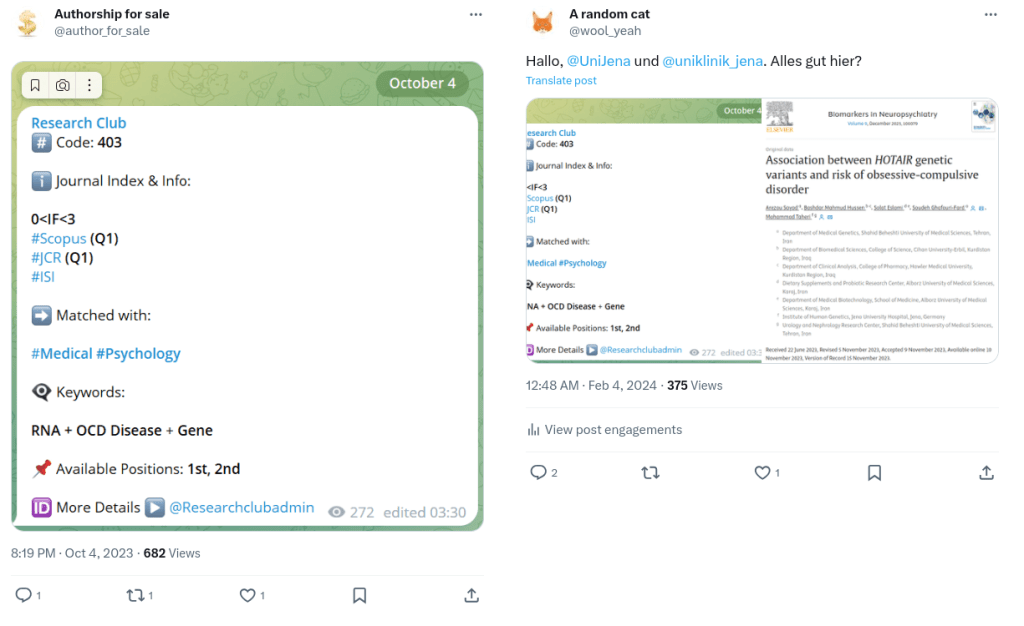
It is this paper that seems to match the advert:
Arezou Sayad, Bashdar Mahmud Hussen, Solat Eslami, Soudeh Ghafouri-Fard, Mohammad Taheri, Association between HOTAIR genetic variants and risk of obsessive-compulsive disorder, Biomarkers in Neuropsychiatry (2023), doi: 10.1016/j.bionps.2023.100079.
Genetic profiling of obsessive-compulsive disorder subjects is not a particularly paper-rich topic, and the editorial timeline is a good match (Received 22 June 2023, Revised 5 November 2023, Accepted 9 November 2023, Available online 10 November 2023, Version of Record 15 November 2023).
As a PubPeer user noted,
“Per the STROBE checklist, could the authors please disclose the recruitment period and location(s)? Unexpectedly, they are missing from the core text.”
Paucimonas lemoignei
Indeed, as the journal claims, it adheres to the Recommendations for the Conduct, Reporting, Editing and Publication of Scholarly Work in Medical Journals. Which recommends to use the STROBE checklist for reporting, that is, among the rest, to “[d]escribe the setting, locations, and relevant dates, including periods of recruitment, exposure, follow-up, and data collection.“
Given that “The study protocol was confirmed by ethical committee of Shahid Beheshti University of Medical Sciences (IR.SBMU.MSP.REC.1400.301) in Tehran”, it is reasonable to imagine that the study was conducted in Iran. That said, there are doubts that an Iraqi Bashdar Mahmud Hussen really paid a visit to Tehran, where he “collected the data and performed the experiment.” And similar doubts may be well-placed that Solat Eslami “analyzed the data“, because the analysis is rather trivial. Normally, there is no need for an expert from another city, even if that city is mere 50 km away. We can also speculate about the real whereabouts at the time of the study of a certain Mohammad Taheri, a man with a dual German-Iranian affiliation. But more on that later.
In fact, there is another distinct possibility: that the speculations above are null and void, the study happened in the fantasies of the Sayad / Ghafouri-Fard / Taheri trio from Tehran, while Hussen and Eslami are paid passengers.
But then the cat dragged in even more!
Soudeh Ghafouri-Fard
Soudeh Ghafouri-Fard is one of the two corresponding authors of the above discussed paper (the other one is Taheri). And ICOIA (International Community of Iranian Academics) appears to bridge scholars of Iranian descent who are not very loyal to the current oppressive regime.
“We are an independent and international network of Iranian academics and students. Our primary objective is to provide a community and a platform to serve the interests of academics of Iranian heritage around the world.
ICOIA, archived source
We strongly believe in and advocate for freedom of information, opinion, and expression.”
The document under the link was no longer accessible, as ICOIA replied to Cheshire, for technical reasons.
Nonetheless, it was captured by the Wayback Machine, from where it was saved into a PDF. The most interesting section is below, unchanged:
“Soudeh Ghafouri-Fard is a medical doctor who graduated from the Tehran University of Medical Sciences in Iran. She got her Ph.D. in Medical Genetics in 2009 from the same university. She is a Professor at the Department of Medical Genetics, School of Medicine, Shahid Beheshti University of Medical Sciences in Iran. Her research interest is cancer biomarkers, gene Knock-down by siRNA, Cancer-Testis Genes, and
Molecular Diagnosis of Human Genetics.
She was recognized as an Expertscape World Expert in Clinical Coding during National Group Practice Week last year (Jan 2022). Also, she was selected as one of the seventh most influential women in the recent International Congress of Women of Influence held in Tehran, the capital of Iran, in response to all-out pressures after the “Women-Life-Freedom” movement. The main sponsor of the congress was Ebrahim Raisi’s wife, “the first lady of Iran.” Every winner has been awarded a 20,000-euro prize (all seventh). Considering the economic disasters ordinary Iranians face, spending a massive amount of money on people without influence is an important issue that needs more investigation.
Her father, Hassan Ghafouri-fard, is also an Iranian academic and conservative politician. He held government portfolios in the 1980s before being appointed to the Physical Education Organisation under President Akbar Hashemi Rafsanjani. Soudeh’s husband is Mehdi Akhavan Behadadi [a typo, correct: Behabadi – A.M.], the Telecommunication CEO (Hamrah Aval) in Iran.”
Now, the late Hassan Ghafourifard (died in March 2023) was a big fish in Iranian theocracy. Surely the Supreme Leader Ali Khamenei wouldn’t come to personally recite a prayer for someone’s soul, if that someone was a nobody?
Like here (archived), the rector of Shahid Beheshti University, Alireza Zali, offers condolences to Soudeh, his message is followed by the key points of Hassan’s biography.
“I offer my condolences to the deceased’s family, especially to his educated offspring, Dr. Soudeh Ghafourifard, professor of Shahid Beheshti University of Medical Sciences, and to the political and academic community, and I ask God Almighty for forgiveness to the deceased one. […]
Dr. Hassan Ghafourifard, father of Dr. Soudeh Ghafourifard, the director of the elite office of Shahid Beheshti University of Medical Sciences and the selected scientist of the last decade of medical sciences at the scientific festival of the Academy of Medical Sciences, after enduring more than a year of illness and several days of hospitalization, this morning, Thursday, died at the age of 79.
In Tehran, he was the minister of energy (1981-1985) in the first government of Mirhossein Mousavi and the head of the physical education organization in 1989-1994.
He was elected to parliament as a representative of Tehran in the 5th Majlis elections and was a candidate in the presidential elections of 2001.
He was also elected as a member of the Islamic Council for the eighth term.”
And now look, this from 2013, where (archived) Soudeh and her hubby Mehdi Akhavan Behabadi are starring on Iranian TV!
“Dr. Mehdi Akhavan Behabadi and his wife (honorable Mrs. Ghafouri Fard, Doctor of Genetics of Shahid Beheshti University) were guests of tonight’s Zindabad Zindagi program of the Sima Channel 2.
Mehdi Akhavan Behabadi (born 1978), doctor of telecommunications and professor at Tehran University. He is the secretary of the Supreme Council of Cyberspace and the head of the National Center of Cyberspace. He is also an assistant professor in the Faculty of Electrical Engineering, University of Tehran.
In 1997, he won the first place in the national entrance exam and in 2000, he won the first place in the master’s entrance exam. Akhavan Behabadi completed his studies up to the doctorate level in the field of electrical and telecommunication engineering at the University of Tehran. In 2000, he won the title of the first place in the country’s electrical engineering student Olympiad and the country’s exemplary student of the year.
In December 2008, Mehdi Akhavan Behabadi was appointed as the deputy of education, research and international affairs of the Ministry of Communications and Information Technology. In January 2009, he was appointed as the head of the Iran Telecommunication Research Center, which is the largest research center in Iran, and then in May 2009, he was appointed as the Deputy Minister of Communications and Information Technology in Technology and International Affairs.
In 2011, he was appointed as one of the members of the Supreme Council of Cyber Space by the order of the leader of Iran.
The wife of Dr. Akhavan Behabadi, Mrs. Ghafouri Fard, is rank 6 in the national entrance examination, a specialist in genetic sciences and a member of the faculty of Shahid Beheshti University.
It was revealed in tonight’s program that they are also memorizers of the Holy Quran.”
The engineer and telecommunications expert Akhavan-Bekhabadi learned from his wife not only to memorize the Quran, but also medical genetics! In fact, Iran’s celebrity couple discovered a cure for COVID-19:
Mohammadarian Akbari , Mehdi Akhavan-Bahabadi , Navid Shafigh , Afshin Taheriazam , Bashdar Mahmud Hussen , Arezou Sayad , Mohadeseh Fathi , Mohammad Taheri, Soudeh Ghafouri-Fard, Mohammad Fathi Expression analysis of IFNAR1 and TYK2 transcripts in COVID-19 patients Cytokine (2022) doi: 10.1016/j.cyto.2022.155849
“The current study proposes down-regulation of TYK2 as a molecular mechanism for incapacity of SARS-CoV-2 in induction of a competent IFN response.”
What can you expect of this couple if not stellar careers?
“Dr. Soudeh Ghafouri-Fard became the director of the office of brilliant talents and elites of Shahid Beheshti University of Medical Sciences by the decree of the president of Shahid Beheshti University of Medical Sciences.”
German Authorities on Papermills and Whistleblowing
“I am not familiar with Iranian papermills!” – Prof Dr med Henning Madry, Saarland University.
This arrived in 2019 (archived), confirming what we learned above,
“During a ceremony held on Saturday, Mehdi Akhavan Behabadi was introduced as the new CEO of Mobile Telecommunications Company of Iran.”
And in January 2023 (archived), indeed,
“[T]he final minutes of the closing part of the International Congress of Influential Women in the summit hall were accompanied by an award ceremony.
The wife of the prime minister of Armenia, the wife of the prime minister of Burkina Faso, the first lady of Kyrgyzstan, the wife of the president of Serbia, and Jamilasadat Alam Elhadi, the wife of the president of our country, were on the stand to present the awards, and in addition to these people, this ceremony had another special guest. Zeinab Nasrallah, the daughter of Seyyed Hassan Nasrallah, the Secretary General of Hezbollah of Lebanon, also attended the event in Tehran and expressed her gratitude to influential Iranian and foreign women.
The first award was given to Mrs. Lee [Vannajan Sanghiran Lee – A.M.], an outstanding researcher in the field of chemistry and a professor at the University of Thailand. The second prize was awarded to Soudeh Ghafouri-Fard, Ph.D. in Medical Genetics from Iran. Mrs. Elena [Elena Kazantseva – A.M.], a prominent Russian woman was the third chosen one, and Mrs. Zahra Emam Jomeh was the fourth one among the Iranian scientists who was honored at the end of this ceremony. Mrs. Maria Beatrice Yunes, the influential lady of Argentina, was the fifth chosen one who was honored. Also, Mozhgan Zandi, who authored many articles in the field of chemistry and polymer and was another influential woman who was honored at the Tehran International Congress. The last prize was awarded to Penabe Shiami [in reality: Yan Wei (source / archived) – A.M.] from China.”
What a “special guest,” and what a “success story” for Iranian National Commission for UNESCO, headed by the minister of science Mohammad Ali Zolfigol! His specialty is sending killer squads into Iranian universities to torture and kill student protesters, and publishing papermill fraud which occasionally gets retracted, read here:
You will be paid US $500-800 for each paper
“Or The author can also put your name to the article to increase your academic popularity, such as adding your name to the second or third author.”
See also this russian-language source (archived) about the same event.

So these are the circles in which this Soudeh Ghafouri-Fard is revolving. Doubt it not: all the rewards are well-deserved. At the end of the day, her hard work is self-evident through her fourth place among the most productive Iranian researchers of 2022.
Together with:
- Amirhossein Sahebkar (1st place) – an eightfold victim of the Vickers Curse;
- Bagher Larijani (2nd place);
- Nima Rezaei (3rd place);
- Fereidoun Azizi (5th place, the only one from the top-5 without a PubPeer record – yet?)
The Vickers Curse: secret revealed!
How did an editorial about insect pheromone communication get to receive 1200 irrelevant citations, almost all from papermills? Alexander Magazinov reveals The Secret of The Vickers Curse!
Throughout her career, Ghafouri-Fard produced nearly 800 papers, according to Dimensions. More than 500 of them are joint works with Mohammad Taheri, who is by far the most frequent co-author.
Reciprocally, overwhelmingly most of 600+ Taheri’s papers are co-authored with Ghafouri-Fard. A caveat applies: the earlier papers attributed to this profile are probably by some other Taheris, so we limit our selection to 2016 and later, where the attribution to “our” Taheri is out of doubt.
It may look like Taheri is an experienced Western-based senior researcher, whom Ghafouri-Fard convinced, using all her connections solely with good intentions, to join her group and bring the touch of the best German practices in science to the Persian land. Or maybe this is not quite the case?
Mohammad Taheri
First of all, who is this Mohammad Taheri?
World’s greatest biomedical researcher in the non-coding RNA field, as the International Community of Iranian Academics (ICOIA) assures:
Taheri is Number One, followed by Ghafouri-Fard and their collaborators, and they even outrank Carlo Croce‘s mentee George Calin at MD Anderson in USA.
Croce begat Calin, and Calin begat Girnita…
An academic dynasty of bad cancer research.
Being world’s greatest expert on non-coding RNAs, Taheri of course writes authoritative reviews. Here is one:
Soudeh Ghafouri-Fard , Hamed Shoorei , Mahdi Mohaqiq , Mohammad Taheri Non-coding RNAs regulate angiogenic processes Vascular Pharmacology (2020) doi: 10.1016/j.vph.2020.106778
16 references have been retracted by February 2024, a number of others look like papermilled and some are on PubPeer. Taheri’s reaction:
“All of the listed references were retracted 1 or 2 years after our publication. I don’t understand; what do you mean by listing the retracted paper after our publication? It seems to us that you want to create doubt in our publication, and you are not being fair enough.“
The reply here is even better, another review based on several retracted references:
Bashdar Mahmud Hussen , Hamed Shoorei , Mahdi Mohaqiq , Marcel E. Dinger, Hazha Jamal Hidayat , Mohammad Taheri , Soudeh Ghafouri-Fard The Impact of Non-coding RNAs in the Epithelial to Mesenchymal Transition Frontiers in molecular biosciences (2021) doi: 10.3389/fmolb.2021.665199
Brace yourself for Taheri’s reply:
“The retracted papers cited by us were retracted one or two years after our publication, not before. When writing a review paper, it is not feasible to evaluate all 200 original papers that you intend to cite.”
At least he is honest? Anyway, one of the papers Taheri referenced was retracted before he submitted his authoritative review on non-coding RNAs in cancer. There are many more examples of such trash reviews of Asian papermilling by Taheri, on PubPeer.
Now, to Taheri’s preclinical research. Generally, you would expect editors and publishers to check for ethics approvals for animal experiments. At Frontiers, it is OK when the ethics approval was issued 4 days before the manuscript was submitted.
Farshid Etaee , Arezoo Rezvani-Kamran , Somayeh Komaki , Masoumeh Asadbegi , Nafiseh Faraji , Safoura Raoufi , Mohammad Taheri, Masoumeh Kourosh-Arami , Alireza Komaki Effects of Buprenorphine on the Memory and Learning Deficit Induced by Methamphetamine Administration in Male Rats Frontiers in behavioral neuroscience (2021) doi: 10.3389/fnbeh.2021.748563


Approval issued on 24 July 2021, manuscript submitted to Frontiers on 28 July 2021. Taheri explained on PubPeer:
“It seems that some individuals on PubPeer are making comments without sufficient information, potentially sending irrelevant remarks. It’s crucial to recognize that this platform is not a judicial entity, and users are not acting as judges. Authors have the option to share such information with individuals who contact them through academic email with valid reasons.
While constructive scientific comments are welcomed and appreciated, comments lacking substance can be perceived as a waste of time for scientists. The focus should remain on fostering meaningful and informed discussions within the academic community.”
Waste of time is actually what Taheri and his mate Alireza Kamaki publish. This was already retracted in December 2023:
Shahab Ghaderi , Alireza Komaki , Iraj Salehi , Zahra Basir , Masome Rashno Possible mechanisms involved in the protective effects of chrysin against lead-induced cognitive decline: An in vivo study in a rat model Biomedicine & pharmacotherapy = Biomedecine & pharmacotherapie (2023) doi: 10.1016/j.biopha.2022.114010

Now let’s look at Taheri’s clinical research. Here another case where he complained of unqualified PubPeer commenters wasting his time. In the totalitarian terror states like Iran, humans and rats have the same value. Ethics approvals are issued after all experiments were done.
Sepehr Behtaji , Soudeh Ghafouri-Fard, Arezou Sayad , Ali Sattari , Mathieu Rederstorff , Mohammad Taheri Identification of oxytocin-related lncRNAs and assessment of their expression in breast cancer Scientific reports (2021) doi: 10.1038/s41598-021-86097-2


Taheri explained on PubPeer:
“Tissues were obtained during the mentioned period and stored in the lab. Patients signed the informed consent forms to permit their samples being used in expression assays. Ethical approval was also obtained. After completing the required sample size, another ethical approval code was obtained. [….] It is important to note that the absence of a corresponding ethical code on this website does not necessarily imply that the authors lack an ethical code.“
This alone should be a reason for an immediate retraction. Another case of post-hoc approval:
Soudeh Ghafouri-Fard , Arefe Bahranian , Amir Nicknam , Bashdar Mahmud Hussen , Solat Eslami , Elena Jamali , Nader Akbari Dilmaghani , Guive Sharifi , Mohammad Taheri Expression analysis of lncRNAs in pituitary adenoma Research Square Platform LLC (2023) doi: 10.21203/rs.3.rs-3170200/v1

“Patients were admitted to hospital affiliated to Shahid Beheshti University of Medical Sciences during 2021-2022.” Ethics approval: 14 August 2022.
A study with 837 patients, ethics approval issued less than 5 months before manuscript submission:
Mohammadarian Akbari , Reyhane Eghtedarian , Bashdar Mahmud Hussen , Solat Eslami , Mohammad Taheri, Soudeh Ghafouri-Fard Angiotensin I converting enzyme gene polymorphisms and risk of psychiatric disorders BMC psychiatry (2022) doi: 10.1186/s12888-022-04007-w

Ghafouri-Fard insisted:
“Samples were available prior to study and ethical code had been obtained for other studies. […] The experiments were performed in the mentioned 5 months after receiving the new approval code for mentioned study.”
In Taheri’s and Ghafouri-Fard’s Iran, one can also issue ethics approvals for human studies 6 months after their publication:
Soudeh Ghafouri-Fard, Behnoush Sohrabi , Bashdar Mahmud Hussen , Elham Mehravaran , Elena Jamali , Shahram Arsang-Jang , Mohadeseh Fathi , Mohammad Taheri, Majid Samsami Down-regulation of MEG3, PANDA and CASC2 as p53-related lncRNAs in breast cancer Breast Disease (2022) doi: 10.3233/bd-210069

Ghafouri-Fard replied on PubPeer, but with the text used by Taheri before:
“Tissues were obtained during the mentioned period and stored in the lab. Patients signed the informed consent forms to permit their samples being used in expression assays. Ethical approval was also obtained. After completing the required sample size, another ethical approval code was obtained.”
Both she and Taheri refused to answer a PubPeer user’s request to “provide evidence that an ethical approval was there before the study commenced“. These scientists don’t like their time being wasted.
A similar case, where Taheri and Ghafouri-Fard obtained their ethics approvals after they ran their clinical studies.
Soudeh Ghafouri-Fard, Farzaneh Abbasi , Amir Nicknam , Bashdar Mahmud Hussen , Solat Eslami , Nader Akbari Dilmaghani , Mohammad Taheri, Guive Sharifi Dysregulation of PVT1 and NEAT1 lncRNAs in pituitary adenomas Pathology, research and practice (2023) doi: 10.1016/j.prp.2023.154573


Taheri commented on PubPeer, but refused to explain the post-hoc ethics approval. Another case, Taheri and Gharoufi-Fard curing COVID-19 (like previously with her husband), and again they obtained the ethics approval afterwards:
Majid Samsami , Alireza Fatemi , Reza Jalili Khoshnoud , Karim Kohansal , Bashdar Mahmud Hussen , Shabnam Soghala , Mohammad Taheri, Soudeh Ghafouri-Fard Abnormal Transcript Levels of Cytokines Among Iranian COVID-19 Patients Journal of molecular neuroscience : MN (2022) doi: 10.1007/s12031-021-01941-4


Taheri’s rejected criticism of his COVID-19 clinical studies:
“However, it is essential to highlight that comments of this nature[…] appear to be lacking in depth and understanding. It is evident that these unscientific remarks not only fail to contribute meaningfully but also consume valuable time without yielding constructive responses.”
Also here, we just do not know when the clinical study was performed. Certainly the editors of Scientific Reports were not interested to know. So we must believe the authors?
Mohammad Taheri , Ashkan Pourtavakoli , Solat Eslami , Soudeh Ghafouri-Fard, Arezou Sayad Assessment of expression of calcium signaling related lncRNAs in epilepsy Scientific reports (2023) doi: 10.1038/s41598-023-45341-7
“In total, 40 patients with refractory seizures and 71 healthy persons (41 males and 30 females) were enrolled in the current study. […] The study protocol was permitted by ethical committee of Shahid Beheshti University of Medical Sciences.”
No details. No number of the ethics approval. But Taheri explained on PubPeer:
“The study was conducted in adherence to the ethical guidelines outlined in the previous ethics code (IR.SBMU.RETECH.REC.1398.869) and received approval from the corresponding author.“

Also, the patient data in that study was a mess. Here it was even worse:
Mohammad Taheri, Mohsen Habibi , Rezvan Noroozi , Azadeh Rakhshan , Shaghayegh Sarrafzadeh , Arezou Sayad , Mir Davood Omrani, Soudeh Ghafouri-Fard HOTAIR genetic variants are associated with prostate cancer and benign prostate hyperplasia in an Iranian population Gene (2017) doi: 10.1016/j.gene.2017.02.031

To be fair, that Elsevier journal Gene doesn’t care much about the content of what it publishes. Papermilled fraud as citation vehicle to other papermill fraudsters (Ke et al 2018)? Passes peer review with flying colours, they don’t read beyond the title and don’t even check for plagiarism. In May 2023, Elsevier announced to investigate the Ke et al paper, but then must have agreed with the “author” that “these references does not affect the article’s fundamental conclusion“. No point of reporting Taheri’s nonsense then.
And then we have the good old image fraud.
Amin Safa , Shahram Arsang-Jang , Mohammad Taheri , Mir Davood Omrani, Soudeh Ghafouri-Fard Dysregulation of NF-κB-Associated lncRNAs in Multiple Sclerosis Patients Journal of molecular neuroscience : MN (2020) doi: 10.1007/s12031-020-01628-2

Obviously Taheri is not to be trusted with anything. But objectively, he published over 600 papers in journals which are traditionally considered to be respectable. Which means the best professorship positions in Iran and abroad should be open to him.
So what does he do then, job wise?
A PhD in Germany.
Seriously.

He is listed as a PhD student in the lab of a fellow Iranian, Prof. Dr. rer. nat. Aria Baniahmad, at the Institute for Human Genetics of the University Clinic Jena, in the German state of Thuringia.
This all is very strange considering the fact that Taheri already has a PhD degree from Iran, at least since 2019. Maybe he forgot to tell his Jena graduate school about this, to avoid disqualification?
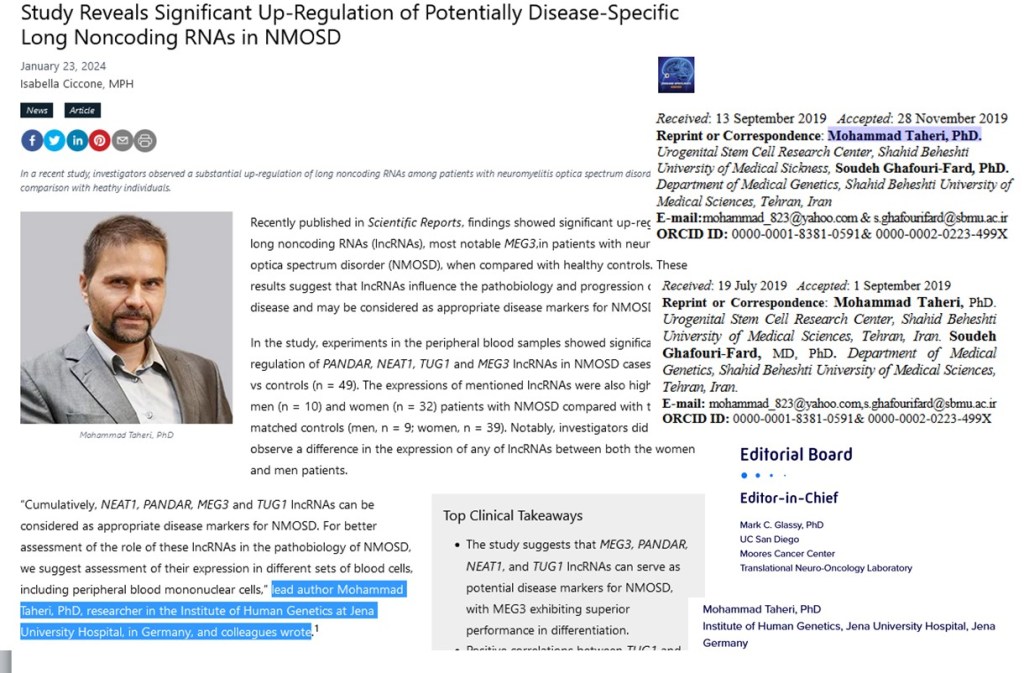
Here some examples. Taheri presented himself as PhD in his papers Soleimani et al 2020 and Esfandi et al 2019, he even presents himself as PhD with University of Jena affiliation in press releases, and is listed as “Mohammad Taheri, PhD, Institute of Human Genetics, Jena University Hospital, Jena, Germany” on the editorial board of the journal Human Antibodies. Its Editor-in-Chief only has admiration for his Iranian peer, as he wrote in an email:
“I have known Mohammad for several years and he is a top scientist. Last email I received from him indicated he accepted a position at Harvard.”
Prof Mark C. Glassy, UC San Diego
Taheri’s real CV doesn’t match his position of a humble PhD student somewhere in Germany. People like him, with his direct connection to the very top of Iranian regime (via Ghafouri-Fard), generally become university leaders in their home countries. If they go to work in the hated satanic West, they flaunt their papermill-bloated CVs and h-indices, sometimes landing straight into professorships. Like the Iranian materials scientist Mohammad Arjmand, who gets to meet and influence the highest politicians in Canada and abroad.
Dr. Mohammad Arjmand showcases his work to German President Steinmeier
“The German President and delegation members also spoke with researchers working on challenges relating to clean energy,…”
Maybe this connection to the very top of the Iranian terror regime is exactly what prevented Taheri to infiltrate Harvard? Maybe he was denied US visa for security reasons? But he succeeded in eastern Germany, under the ridiculous cover of a little PhD student. What exactly is Taheri’s real purpose in Germany, is this a matter for national security maybe?
Is it a coincidence his advisor is a fellow Iranian? We have a lot of questions to the Jena professor Baniahmad, but he chose to remain silent.
Taheri paid Baniahmad back very well. With authorships on trash papers. More authoritative reviews built on papermill fraud, some of which was already retracted.
Here, “at least 2 retracted references and 1 questioned reference,” plus “One of the referees, Hamed Shoorei, has a lasting collaboration with this group, spanning 2020-2023“:
Soudeh Ghafouri-Fard , Tayyebeh Khoshbakht , Bashdar Mahmud Hussen , Aria Baniahmad , Wojciech Branicki , Mohammad Taheri, Ahmad Eghbali Emerging Role of Non-Coding RNAs in Senescence Frontiers in cell and developmental biology (2022) doi: 10.3389/fcell.2022.869011
On PubPeer, Taheri commented:
“The mentioned references were retracted after our publication. The paper was carefully reviewed and screened by the editor and the first reviewer.“
As it happens, this peer review scam, where current coauthors get smuggled in as reviewers, is how Taheri and Ghafouri-Fard generally operate. So far, I could document it only for Frontiers, because there the reviewers are named. Here is a spreadsheet with over 30 entries, all Frontiers papers with rigged peer review. Taheri himself explained that his Iranian buddies were selected by Frontiers editors utterly independently:
“The co-authors lack the authority to influence the journal’s choice of reviewers, particularly respected scholars like Dr. Shoorei, Dr. Noroozi, and Dr. Safa. It is essential to emphasize our unwavering commitment to high standards of medical and research ethics. The allegations made are unfounded.”
He did not entertain the alternative explanation that he fed the names of his fellow papermilling nobodies Hamed Shoorei, Rezvan Noroozi, Amin Safa, Shahram Arsang-Jang, Atefe Abak and Reyhane Eghtedarian to the Frontiers editorial algorithm. Now Baniahmad profits from this scam as well. He published 24 papers with Taheri, only one of them doesn’t have Ghafouri-Fard as coauthor.
Another expert review, with at least 3 retracted references:
Soudeh Ghafouri-Fard , Tayyebeh Khoshbakht , Bashdar Mahmud Hussen , Peixin Dong , Nikolaus Gassler , Mohammad Taheri, Aria Baniahmad, Nader Akbari Dilmaghani A review on the role of cyclin dependent kinases in cancers Cancer cell international (2022) doi: 10.1186/s12935-022-02747-z
Taheri again:
“All these mentioned papers we retracted AFTER our publication.”
Oh, apologies, then all is fine. Here, at least 4 retracted references:
Soudeh Ghafouri-Fard, Bashdar Mahmud Hussen , Mahdi Mohaqiq , Hamed Shoorei , Aria Baniahmad, Mohammad Taheri, Elena Jamali Interplay Between Non-Coding RNAs and Programmed Cell Death Proteins Frontiers in oncology (2022) doi: 10.3389/fonc.2022.808475
Taheri explained on PubPeer:
“After our publication, reference numbers 1 and 2 were retracted. The retractions of reference numbers 3 and 4 do not have any effect on our conclusion.”
Is he stupid or taking the piss? Probably both. Similar situation:
Mohammad Taheri , Elham Badrlou , Bashdar Mahmud Hussen , Amir Hossein Kashi , Soudeh Ghafouri-Fard, Aria Baniahmad Importance of long non-coding RNAs in the pathogenesis, diagnosis, and treatment of prostate cancer Frontiers in oncology (2023) doi: 10.3389/fonc.2023.1123101
This time it was Baniahmad who replied on PubPeer:
“The retracted papers cited by us were retracted one or two years AFTER our publication and not before.“
This is ridiculous. A German professor openly defends a practice of referencing papermills as quality resource for literature reviews in his field. Baniahmad doesn’t even care to cite retracted papers. Here is his fresh paper with Taheri and Ghafouri-Fard, one of many this duo published in the Elsevier journal Pathology – Research and Practice, whose Editor-in-Chief is a certain Alfred Roessner, professor at University of Magdeburg in Germany and former boss and collaborator of the cheater Regine Schneider-Stöck (they have several joint retractions):
Mohammad Taheri, Zeinab Shirvani-Farsani , Atefeh Harsij , Mohadeseh Fathi , Sheyda Khalilian , Soudeh Ghafouri-Fard, Aria Baniahmad A review on the role of KCNQ1OT1 lncRNA in human disorders Pathology, research and practice (2024) doi: 10.1016/j.prp.2024.155188
“Coming fresh off the press (Received 2 January 2024, Revised 28 January 2024, Accepted 31 January 2024, Available online 3 February 2024, Version of Record 7 February 2024) with several references in the bibliography already retracted.”
Elaphoglossum callifolium
Same situation with previously retracted references in Ghafouri-Fard et al, Pathology, research and practice, 2024, submitted just weeks ago. No point of writing to the editor then. But we must urgently notify the research integrity responsible of the University Clinic Jena. Let’s check, the Ombudsman for medicine is…

Yes, it’s Aria Ombudsahmad, responsible for investigating himself and his utterly unremarkable Iranian PhD student.
Good thing that the university does not rely on Ombudsahmad with the investigation. Georg Pohnert, interim President of the University of Jena, wrote to us on 8 February 2024:
“we have initiated an investigation into the allegations. We confirm that we take full account of conflict of interest.
Thank you for your emails, which we take very seriously.“
Also the scientific director and dean of the Universiyt Clinic Jena, Thomas Kamradt, wrote to us on 16.02.2024:
“Thank you for your information about the possible secret service activity of an employee of the University Hospital, which I take very seriously. I have forwarded your report to the internal reporting office set up at Jena University Hospital in accordance with the law for better protection of whistleblowers…”
In any case, we can only congratulate Ghafouri-Fard, looking at how easily her disciples acquire positions at Western Universities. Just look at the respectable affiliations of the above mentioned Safa, Eghtedarian, Noroozi and Arsang-Jang! Johns Hopkins University, University of Wisconsin, University of Helsinki, etc.
Meanwhile, Amin Safa also managed to show off with a notorious affiliation of Duy Tan University in Vietnam – but it is rather an intermittent bug than a feature, right?
Wiley: Committed to integrity? Get out!
“We have initiated post-acceptance peer review with independent reviewers… ” – Wiley.
There are no worries to the West, only benefits: so much great brains are coming nourished by the great Persian tradition of genetics. Unless…
I thank all my donors for supporting my journalism. You can be one of them!
Make a one-time donation:
I thank all my donors for supporting my journalism. You can be one of them!
Make a monthly donation:
Choose an amount
Or enter a custom amount
Your contribution is appreciated.
Your contribution is appreciated.
DonateDonate monthly
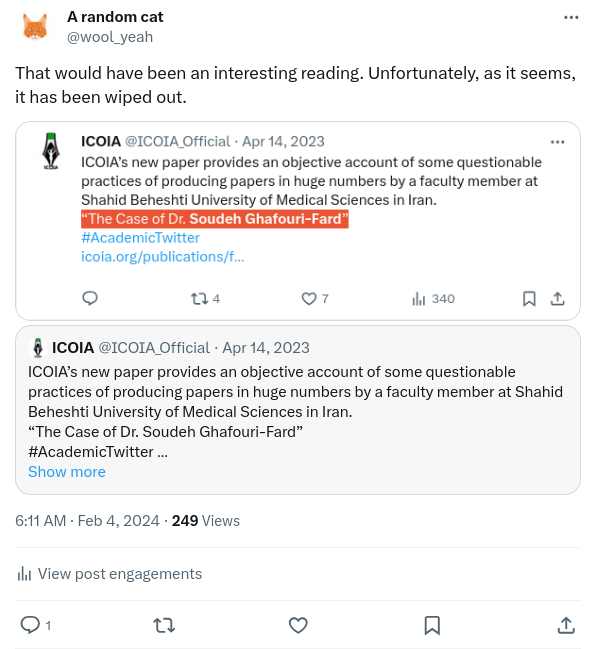
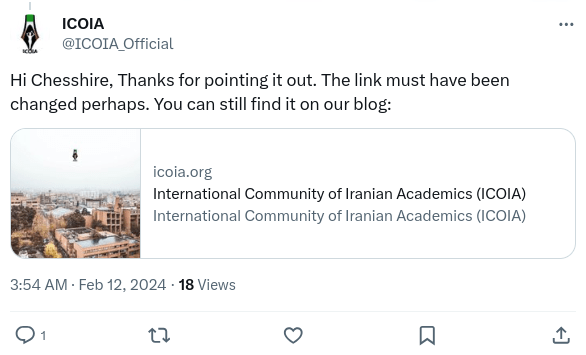
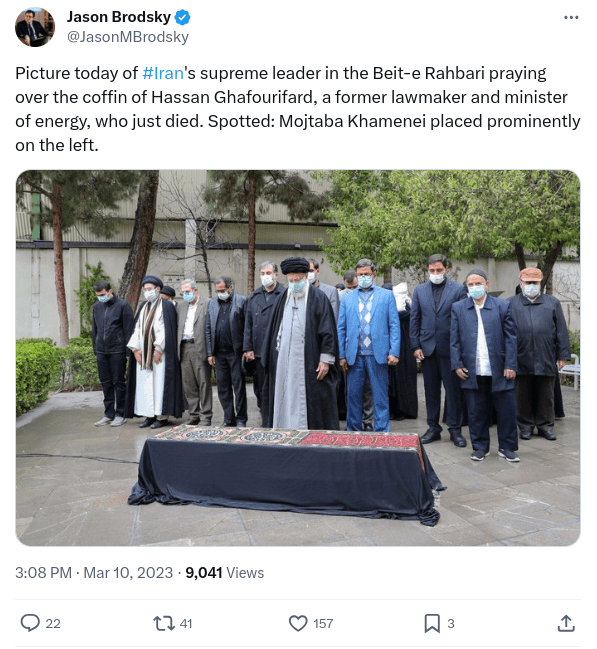
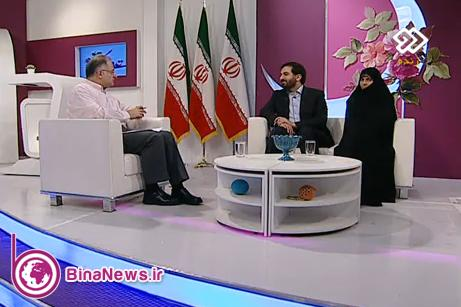

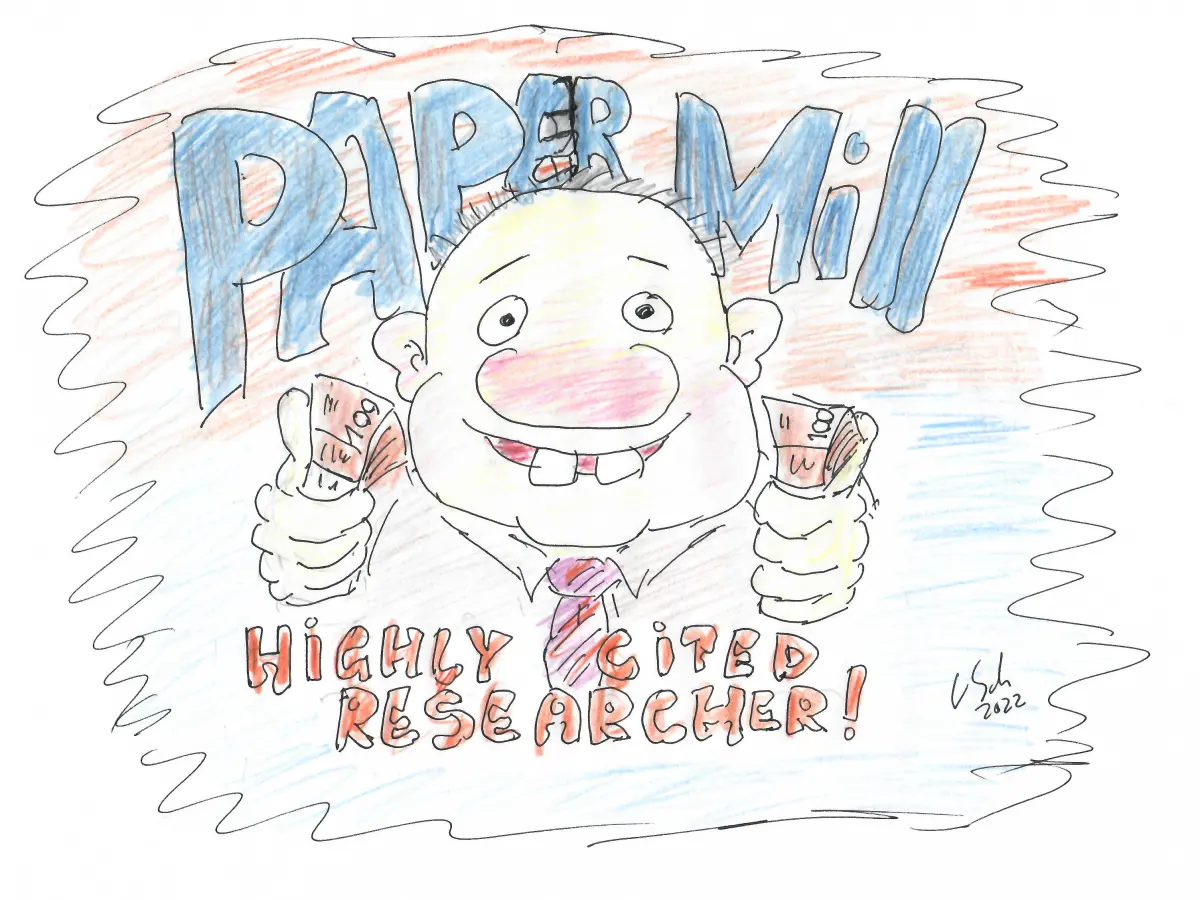
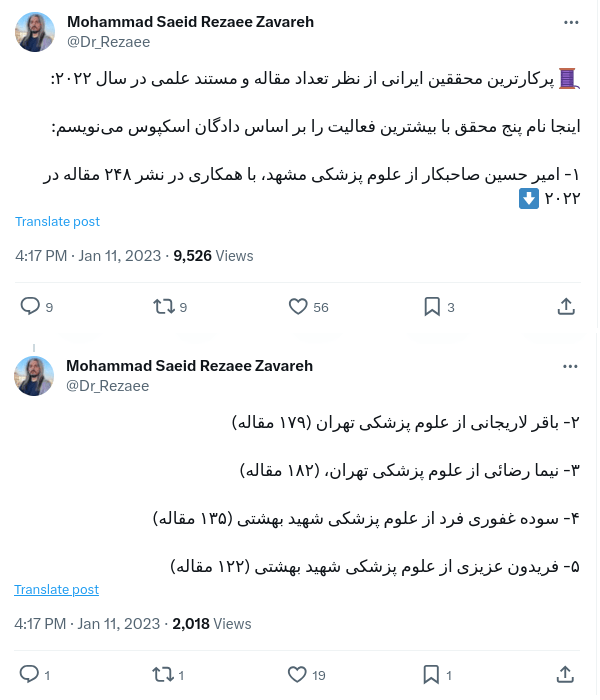

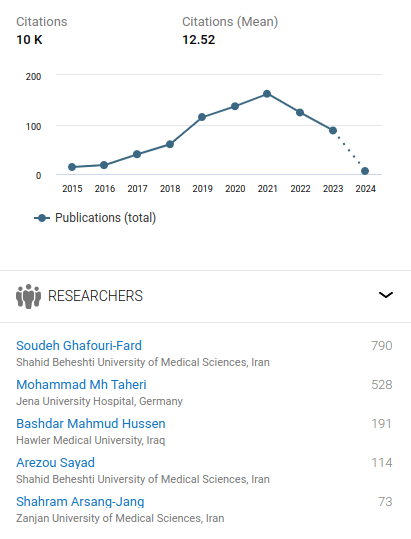
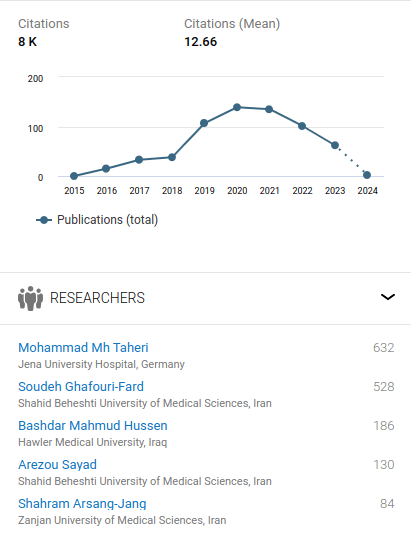
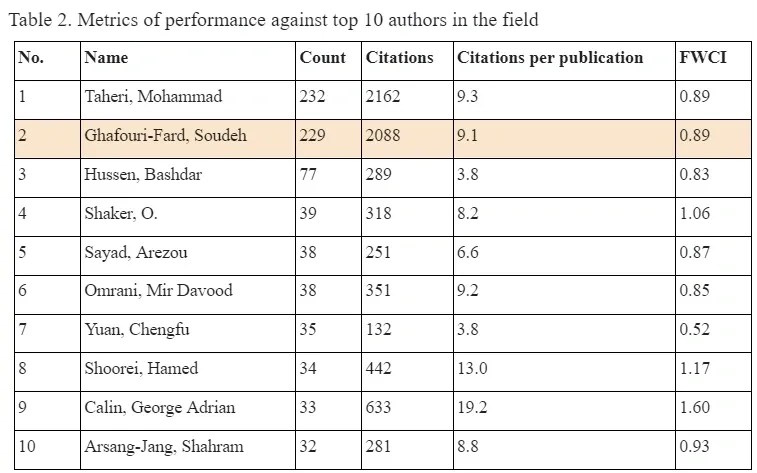
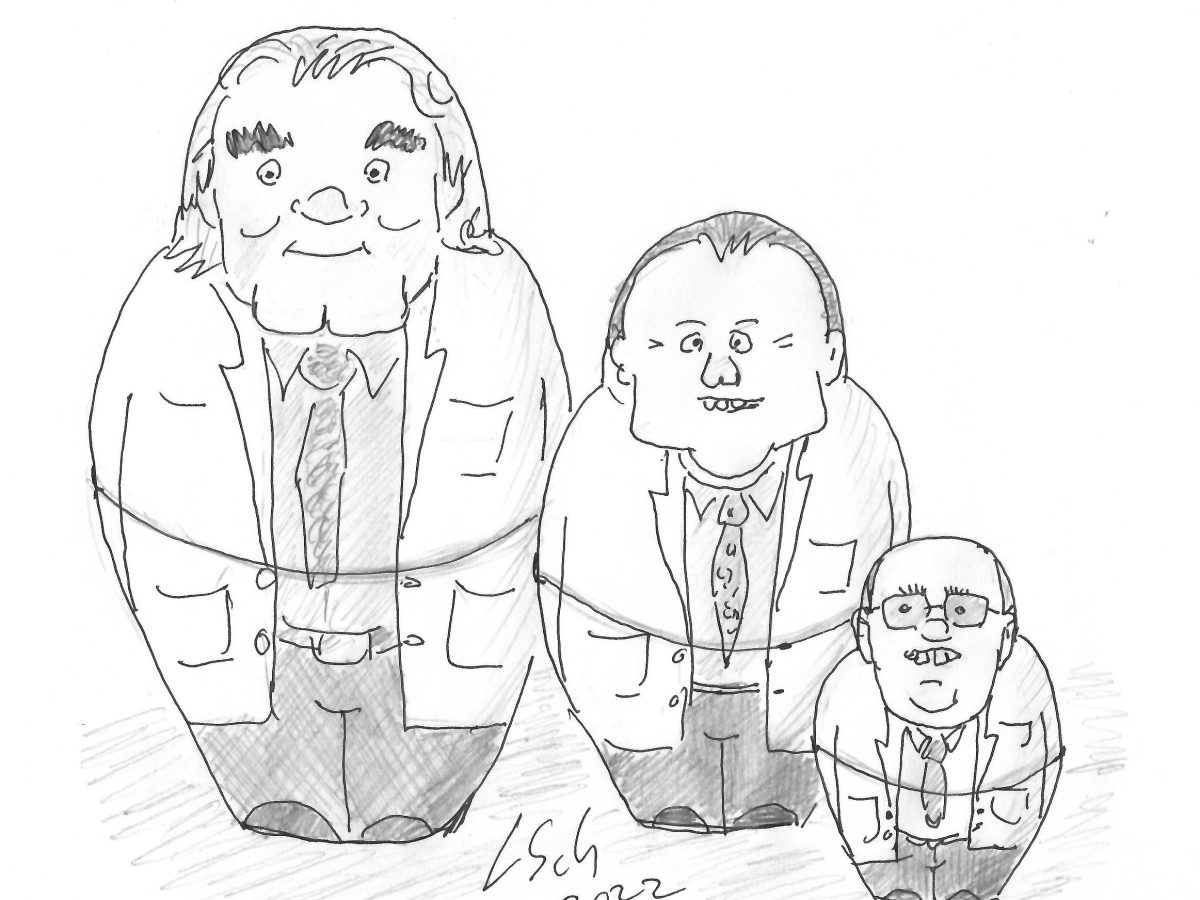




Shahram Arsang is affiliated with the Medical College of Wisconsin, not the University of Wisconsin, two separate institutions. Reading over his areas of research on the college’s website, the infamous disgraced Anil Potti of Duke U. comes to mind. One can only hope that unlike Potti, Arsang has no contact with patients who can be harmed within his department of hematology and oncology.
LikeLiked by 1 person
Why is Shahram Arsangy designated as a postoc in the US when he was a professor in Iran? This article sheds light on these oddities.
LikeLike
This engaging Persian-flavoured academic scam could elevate to the status of a spy story. This could have happened only in academia, which became the soft belly of today’s society, a place where nobody checks or gives a damn about anything beside money flow, awards and metrics. When shall we reform this sort of amusement park?
LikeLike
I don’t quite agree that academia is special intelligence-wise these days (this could be the case 10 years ago or so). The Novichok dudes weren’t connected to academia, after all.
The biggest problem is that the counterintelligence sucks big time everywhere in the West. Heck, how about this story, a dude invited to do “research” at a Canadian university with ZERO visible credentials.
LikeLiked by 1 person
Majid should’ve applied as. PhD student to a trusty Iranian faculty member in Canada. Arjmand for example. Nobody would’ve noticed.
LikeLike
You’re both right, it’s state funded intelligence and counterintelligence is absent in academia. Why bother spending precious counterintelligence resources for an ordinary “researcher”?
On the other hand, the Novichok dudes had extremely important tasks to complete that cannot be faked. To this day I am not sure whether they failed or succeeded…
LikeLike
Hiya: Keep up the good work. Regards, Daniel Forbes
LikeLike
At the International Institute for Applied Systems Analysis where we have:
Ali Kharrazi: https://iiasa.ac.at/staff/ali-kharrazi
https://scholar.google.co.jp/citations?user=mtJ8hqYAAAAJ&hl=en
the son of Kamal Kharazi, Member of Expediency Discernment Council of Iran regime, dear friend of Putin. https://en.wikipedia.org/wiki/Kamal_Kharazi
LikeLike
Lol, daddy’s blood money buys a lot of papermill authorship.
Just very unpatriotic to buy from Chinese papermills when there are good Iranian ones.
LikeLike
Some exclusive Chinese papermills provide very high quality manuscripts. It is generally very difficult to find an error in them. Maybe we should find an alternative definition/name for these papermills. They are rather a closed community for gift or paid authorship. Daddy’s blood money well spent. He would rather keep a low profile. Top elite often keep low profile.
LikeLike
Taheri’s title on the Editorial Board of Human Antibodies now reads,
In any case, the Wayback Machine remembers the earlier state of affairs.
LikeLike
https://www.emedevents.com/speaker-profile/mark-c-glassy
“Dr. Glassy is the Chief Science Officer of Nascent Biotech, Inc. and the Director and Professor at the Integrated Medical Science Association Foundation. Glassy has held several upper-management positions in commercial biotechnology. He was co-founder and CEO of Shantha West, Inc, a subsidiary of India-based Shantha Biotechnics of Hyderabad, India. Shantha West resulted from a joint venture between East/West Laboratories Inc. (a predecessor company to Shantha West, Inc.) and Shantha Biotechnics. Shantha was subsequently sold to Merieux Alliance in 2007. Prior to that Glassy served as Vice President of Research and Development for Novopharm Biotech Inc. He has prepared and directed several FDA-approved clinical trials involving human monoclonal antibodies to cancer. Prior to Novopharm, Glassy was Director of Immunology at Brunswick Biotechnics and Chief of the Human Antibody Program at Biotherapeutics, Inc.
In 1980 Glassy joined the Department of Medicine and Cancer Center of the University of California, San Diego faculty and is currently a Visiting Scholar in the Mechanical and Aerospace Engineering Department at UCSD. “
One would not think this white American man with an authoritative moustache is a gormless nincompoop who just spews made-up bullshit to impress people. Yet he apparently is, recall his trash claim that Professor Taheri was about to join Harvard.

Now Glassy admits to all the world that he installed a PhD student as editorial board member.
LikeLike
Approval issued on 24 July 2021, manuscript submitted to Frontiers on 28 July 2024, should it be 28 July 2021?
LikeLike
Thanks, will fix!
LikeLike
This is a wonderful work. Hats off to Magazinov. It is truly admirable that finding a clear connection with the Iran terrorist regime has been revealed so clearly.
I think learning about ICOIA answered many questions in my mind. Because Iranian researchers from various parts of the world can come together in many papermill studies to increase the number of citations and articles. I don’t know if there is another community that can do this. There are also many Chinese and Indian papermill groups, but I think they are less likely to come together to co-author an article from many different parts of the world.
But doesn’t another question arise in this article? For example, whether some editors at scientific journals are involved in this? Because all this papermill efforts actually end with the manuscript submission phase. The editors are responsible for checking and evaluating these articles. Can we say that these editors may be also related to these papermill gangs?
Another question. Why did countries allow this environment in their universities? I read the Arjomand case on your blog. Again, in your article Please Don’t Steal My Work, I commented a case in Denmark. Now, there is an example from Germany in this article. Why don’t universities care about this situation? Is it because they need the citations that will come with papermills or do they really not care about these tallies?
What they do or turn a blind eye to will not allow academic outputs to improve in any way. Moreover, this eliminates the possibility of real innovation. How can one strive for innovation in such an environment? It will just be an even more corrupt system. Why is this so hard to see?
LikeLike
I am being told by a knowledgeable source that ICOIA are mostly honest, although exceptions might or might not exist. Caution should be applied in any case.
There are other associations of Iranian expats, some are fairly well-known, that are definitely not benign.
LikeLike
Academics think that science is above politics and everything else. That’s why universities are full of Chinese, russian and Iranian agents. Our only hope is that they will steal nothing but our own fraud.
LikeLike
And here we see Arsang-Jang togeher with Hossein Danafar.
—
Sabzehei F, Taromchi AH, Ramazani A, et al. Cationic micelle delivery of a multi-epitope vaccine candidate derived from tumor-associated antigens, causing regression in established CT26 colorectal tumors in mice. J Biomed Mater Res. 2023; 1-10. doi: 10.1002/jbm.a.37654
—
As the reader may guess, Danafar is not a stranger to this blog.
LikeLike
Ethical approval? What freaking ethical approval?
https://pubpeer.com/publications/ECE94B1F86FFFCBDDF9FAFA0B4C9EE
LikeLike
“Kaveh Madani, Director of the United Nations Think Tank on Water, Research Professor at CUNY-CREST, Ex-VP of UN Environmental Assembly Bureau, Iran’s Former Deputy Vice President” has posted:
—
Iranian universities and research institutions that #Canada now considers a potential “threat to national #security”:
1. Aerospace Research Institute (ARI)
2. Baghyatollah Medical Sciences University (BMSU)
3. Defence Industries Organization Training and Research Institute
4. Explosion and Impact Technology Research Centre (METFAZ)
5. Imam Hossein University (IHU)
6. Institute of Applied Physics (IAP)
7. Iranian Research Organization for Science and Technology (IROST)
8. Pasteur Institute of Iran
9. Physics Research Center
10. Shahid Beheshti University (SBU)
11. Shahid Sattari Air Force University
12. #Sharif University of Technology (SUT), AKA Arya-Mehr University of Technology
If you’re a Canadian researcher affiliated or collaborating with these institutions, you could be ineligible for federal funding.
Many of Canada’s top researchers and experts, including many of its professors and students, have studied or worked at some of the listed institutions.
It is not yet clear how the new “Policy on Sensitive Technology Research and Affiliations of Concern” is going to be enforced and how it will affect research collaboration between Canadian and Iranian researchers.
This policy considers “in-kind support” from these institutions as a potential national security threat but does not clarify if that could include the scientific input and co-authorship of researchers at the listed institutions.
The new policy, which includes 6 Russian and 85 Chinese institutions, also considers 11 areas as “Sensitive Technology Research Areas” that may be “of interest to foreign state, state-sponsored, and non-state actors, seeking to misappropriate Canada’s technological advantages to our detriment”:
1. Advanced Digital Infrastructure Technology
2. Advanced #Energy Technology
3. Advanced Materials and #Manufacturing (Advanced Materials and Advanced Manufacturing)
4. Advanced #Sensing and Surveillance
5. Advanced Weapons
6. Aerospace, Space and #Satellite Technology
7. Artificial Intelligence (#AI) and Big Data Technology
8. Human-Machine Integration
9. Life Science Technology (Biotechnology and Medical and #Healthcare Technology)
10. #Quantum Science and Technology
11. #Robotics and Autonomous Systems
LikeLike
Dear Cat, what can we do with this Boston-based company:
https://www.facebook.com/metaanalysis.academy
https://www.threads.net/@metaanalysis.academy
linktr.ee/metaafacebook https://metaanalysis.academy/
Its ad on youtube and everywhere getting annoying.
LikeLike
The cardiologist, Rhanderson Cardoso, based on his website: https://metaanalysis.academy/
charging around 1200USD. Considering that he has over 6000 followers, or maybe more in different platforms, we are talking about at least 7 million USD turnover. What kind of business is this? is this ethical? Why Cardiologists need publications anyway? in Netherlands we dont need publications for Cardiologists.
LikeLike
The LinkedIn profile of Taheri now reads as if he left Jena in October 2023.
I am pretty sure that this was not the case when this post was published.
LikeLike
He just finished his third PhD there in that period. It wont say he left or anything.
LikeLike
I don’t think PhDs in general, and in molecular genetics particularly, are doable in Germany within 2 years.
And I remember that there was a very different date as this post came online.
Yet, unlike the above poster, I have never even come close to co-authorship with Yasin Orooji, Somchai Wongwises, Onid Mahian, Yong Sik Ok, or Dionysios Dionysiou. So I must know nothing.
LikeLike
A PhD in Germany is at least 3 years
LikeLike
Exceptional and smart people can finish PhD in 1 year, some even just need to submit a thesis without even spending time at an institute.
LikeLike
You are right! Such exceptional people just buy a thesis off internet, pay.a bribe to some professor, and graduate in a few months without ever setting foot in that lab or the same country even.
Indeed this is how Taheri got his PhD in Iran.
But it doesn’t work like this in Jena, even with Ombudsahmad.
Now go crawl back under your stone, Somchai.
LikeLike
And then there was a March 2024 paper about genetics of suicide victims. PubPeer.
To drive the elephant out of the room: even if it had been genuine, it is useless: more likely than not, they are measuring differences between social groups in Tehran area, that’s it.
On top of that, dodgy ethics: who consented to the cardiopuncture of the victims?
And yet on top: they can’t make their data consistent regarding the average age in the sample.
Probably by mistake, Amelia Nasrallah, the managing editor of the journal, sent me the review history of this article.
Ah sh*t, here we go again. Amin Safa as a reviewer.
And who tells me what the speciality of Rahimi-Moghaddam is, gets a prize. Leishmaniosis, obesity, cancer, something else? Maybe just papermilling?
I assume Pospiech and Mandelli never got to submit their reviews (empty brackets).
But Pospiech is likely a frontend to Rezvan Noroozi, not to mention that she has common papers with Ghafouri-Fard.
And Mandelli seems to not be involved in academia any longer, having retreated to private practice since 2018, with her last paper published in 2021. To be fair, she is still the most relevant reviewer here.
LikeLike
Obviously, I sent you the information below in error. I meant it sent to the Editor.
The editorial office noted that the study was approved by an IRB.
Please send any further queries you have to the publisher.
Regards,
Amelia
LikeLike
“Obviously, you have an issue with the background of the authors and reviewers.
Amelia T. Nasrallah, MA
Senior Managing Editor/Schizophrenia Research
Senior Managing Editor/Biomarkers in Neuropsychiatry”
YOU ARE RACIST TOWARDS ARYANS!!!
LikeLike